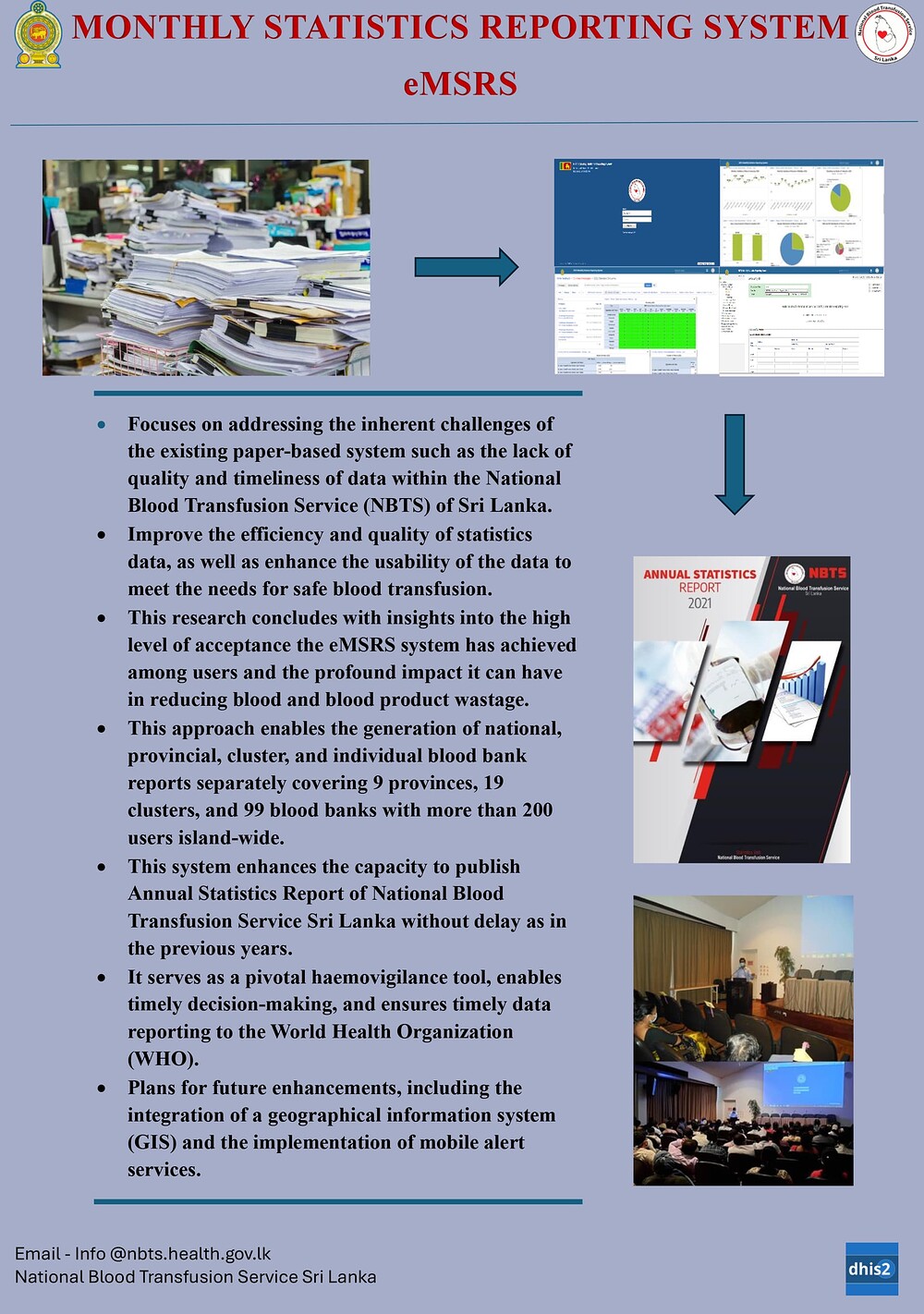Abstract:
This research explores the development and successful implementation of an innovative electronic information management system, eMSRS, aimed at addressing the inherent challenges of the existing paper-based system such as the lack of quality and timeliness of data within the National Blood Transfusion Service (NBTS) of Sri Lanka. The system is structured around a four-level organizational hierarchy, which includes Sri Lanka, its Provinces, Clusters, and 100-odd individual Blood Banks, each equipped to independently analyze data for tailored reporting.
A paramount aspect of the eMSRS system is its robust data security measures, ensuring that external access is restricted, and only authorized users can interact with the system. The research study demonstrates the system’s ability to overcome previously identified issues of paper-based system, thereby improving the efficiency, effectiveness, and data quality essential for ensuring safe blood transfusions.
To address these challenges, this system was meticulously designed and developed utilizing DHIS2, a versatile Free and Open-Source Software (FOSS) tailored to meet the specific requirements of the National Blood Transfusion Service. To evaluate the effectiveness of the newly introduced system, a qualitative study was conducted through semi-structured interviews involving 17 participants within the NBC Cluster, which encompasses 11 blood banks in the Colombo area. The data collected were subjected to thematic analysis techniques, revealing emerging categories and themes that served as the foundation for subsequent discussions.
This research concludes with insights into the high level of acceptance the eMSRS system has achieved among users and the profound impact it can have in reducing blood and blood product wastage. Furthermore, it serves as a pivotal haemovigilance tool, enables real-time decision-making, and ensures timely data reporting to the World Health Organization (WHO). We also discuss plans for future enhancements, including the integration of a geographical information system (GIS) and the implementation of mobile alert services.
Our recommendations emphasize a rearrangement of blood bank functions to optimize the system’s efficiency, an upgrade of hardware and internet connectivity, and the importance of developing a comprehensive training program.
This presentation highlights the transformative potential of the eMSRS system, shedding light on the significant improvements it promises for the quality of blood transfusion services in Sri Lanka. The findings also hold broader implications, contributing to the advancement of Biomedical Informatics and emphasizing the advantages of transitioning from paper-based to electronic systems in healthcare. We look forward to sharing our experiences, insights, and lessons learned with the conference attendees.
